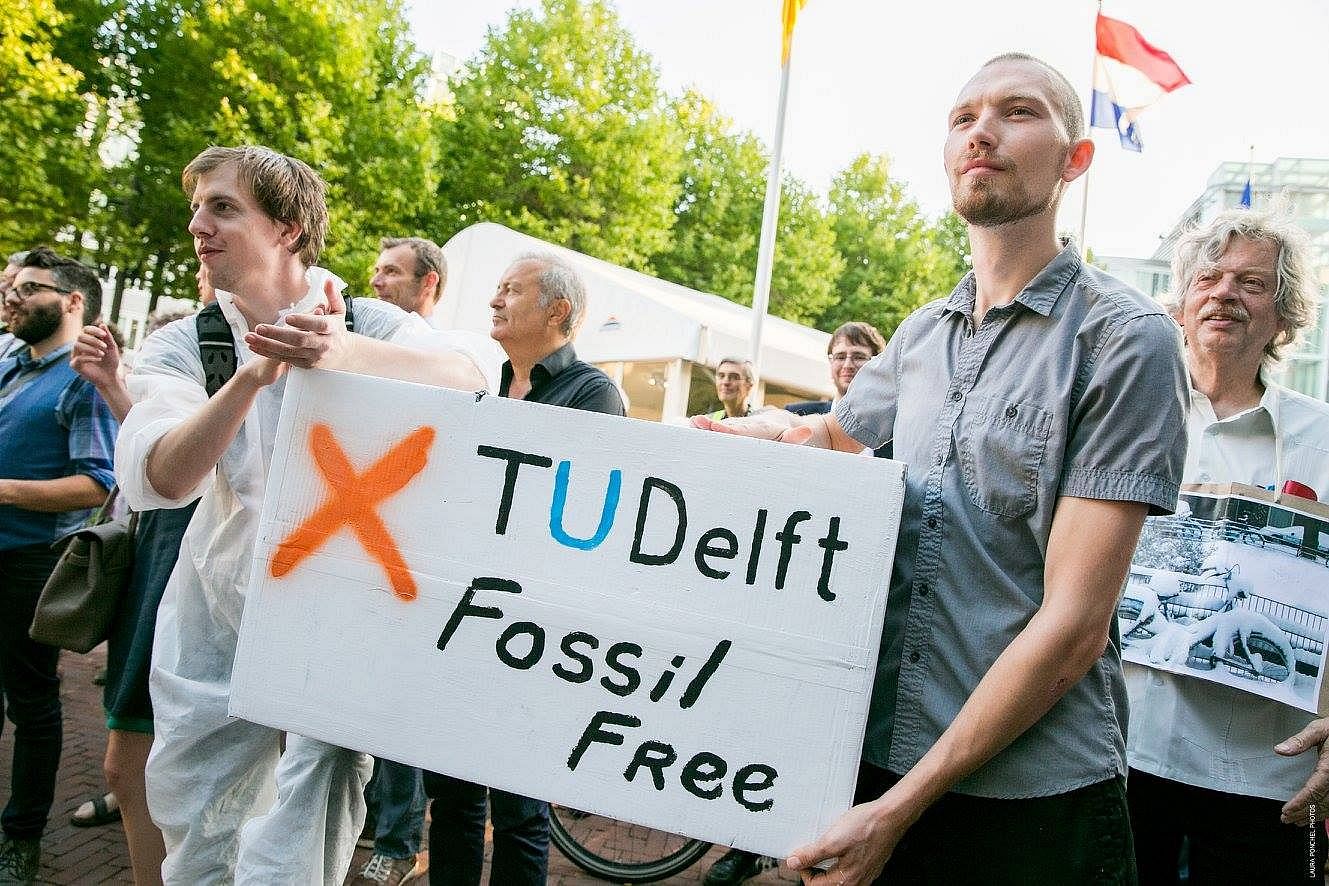After Wageningen and Utrecht, the fossil-free student movement has reached TU Delft. A petition to the TU’s executive board is ready to sign.
“We are the generation that has to quit fossil fuel. We expect TU Delft to join us in that mission,” said aerospace master’s student Gjalt Annega. Together with Michiel de Bie, industrial design master’s student, he explained the purpose of the action group Fossil-Free TU Delft. The students want the university to ‘divest’ from fossil fuels. “When TU talks about sustainability, it’s only about research. Banking, sponsorships, and studies like petroleum engineering are fossil-based, just as the university’s energy use.”
The students want TU Delft to reduce its fossil ties, starting with a transfer to another bank. Currently, TU runs its accounts at the ABN-Amro Bank which, according to a comparison website, scores poorly on climate policies (3 out of 10). Banks like Triodos or ASN Bank have far better CO2 performances (8 and 9).
The students have drawn up a petition that they want TU staff and students to sign. It says ‘Fossil Free TU Delft think that this university must think about the future and has an important function in creating a sustainable world. A partnership with a bank that invests a lot in fossil fuels is inappropriate for this. That is why we want the University to change to a sustainable bank.’
Until now, about 100 people have signed the petition. The Fossil-Free team will continue campaigning on campus, often dressed in white overalls, asking more students and staff to sign up. Another 20 campaigning actions will be necessary, De Bie estimates, before reaching the required amount of 1000 supporters.
A voice on the Student Council is the group’s next target. Talks with Oras and Beta are on-going. Alternatively, the FossilFree group contemplates acquiring its proper seat in the Council. “I hate the word ‘power’,” said Annega, “but you need it to change things.”
The students are currently in the phase of “engagement and enragement”, as they call it. Making people aware of the fossil ties of the TU Delft and nudging them into action. They do that by campaigning on the campus and by organising weekly open meetings, and also film screenings and debates. All events are published on their Facebook page.
They follow in the footsteps of FossilFree movements in Wageningen and Utrecht. These groups display activism and idealism that we haven’t seen since the 1980’s. “We need idealism again,” reacted Annega. “The time from ‘There Is No Alternative’, TINA, is over. You see it in the attraction of Jeremy Corbyn in the UK or Bernie Sanders in the US. We urgently need an alternative for fossil fuels.”



Comments are closed.